Level:
Integrated academic studiesLength of studies:
5 years (10 semesters)Total ECTS credits earned:
300Acquired title:
Master of Pharmacy (MPharm)Language of instruction:
English
AIMS
The general aim of the study program is to educate Masters of Pharmacy as professionally competent and highly-skilled experts able to successfully perform all professional duties.
Masters of Pharmacy will be thoroughly introduced with physico-chemical properties, composition, manufacturing and use of pharmaceutical products, as well as their quality control. Study program will allow graduate pharmacists to master skills of rational drug use for diagnostic, preventive and therapeutic purposes.
Specific aims are:
The aims of the study program of Pharmacy are to educate Masters of Pharmacy as highly competent and skilled professionals able to meet the demands of:
Masters of Pharmacy will be thoroughly introduced with physico-chemical properties, composition, manufacturing and use of pharmaceutical products, as well as their quality control. Study program will allow graduate pharmacists to master skills of rational drug use for diagnostic, preventive and therapeutic purposes.
Specific aims are:
- to provide students with adequate knowledge of natural, medical and pharmaceutical sciences relevant to pharmacy
- to train students to apply the acquired knowledge and skills in solving different problems in pharmacy
- to ensure students have the practical skills to perform experimental work and analysis of experimental data
- for students to gain professional skills in the health care system/economy/marketing/research and development, i.e. on each position pharmacists can perform pharmaceutical practice
- for students to develop communication skills and ability to use modern information technologies
- to provide students with knowledge on dispensing drugs, drug use and prescription patterns
- to teach students to assess the safety, efficacy and cost-benefit of therapeutic protocols
- to empower students to identify and report side effects and adverse events to train students for safe handling, storage and disposal of chemicals, laboratory equipment, pharmaceutical and medical waste and safe
- handling with laboratory equipment
- to instil the skills for compounding and galenic preparations
- to teach students to practice pharmacy as individuals and/or as a part of a team
- to encourage professional and scientific curiosity and enthusiasm as driving forces of continuing education and professional growth
The aims of the study program of Pharmacy are to educate Masters of Pharmacy as highly competent and skilled professionals able to meet the demands of:
- the healthcare system (primary, secondary and tertiary healthcare, institutes)
- economy (pharmaceutical industry, pharmaceutical companies)
- education, science, research and development (high schools, universities; science and reasearch units; continuing education) regulatory bodies (Medicines and Medical Devices Agency of Serbia and others)
COMPETENCIES
During the Integrated studies of Pharmacy, students will acquire competencies required for effective performance in the pharmaceutical sector.
General competencies acquired during the Integrated studies in Pharmacy are:
Subject-specific competencies acquired during the Integrated studies of Pharmacy are:
After graduation, Master in Pharmacy will hold knowledge and skills to:
General competencies acquired during the Integrated studies in Pharmacy are:
- knowledge and critical understanding of principles and theories in pharmacy identification and analysis of different problems and issues in the pharmaceutical sector, problem solving assessment, and application of knowledge, skills and planned strategies in order to solve problems
- critical evaluation, interpretation and integration of pharmaceutical information and data
- effective communication skills within the workspace environment with patients and people engaged in pharmaceutical practice in our country and abroad
- understanding of ethical principles of all aspects of pharmaceutical profession
Subject-specific competencies acquired during the Integrated studies of Pharmacy are:
- professional knowledge and skills required for efficient and independent performance within the healthcare system, economy, marketing, regulatory bodies, research and development, i.e. in all settings where a pharmacist can practice his professional skills
- the ability to solve specific problems and issues from identifying them, choosing compatible problem-solving techniques/procedures to evaluating final outcomes
- implementing an integrated approach to professional practice, using acquired knowledge and skills from medical, pharmaceutical and basic natural sciences
- using current information technologies in professional practice
- commitment to continuous improvement, learning and professional development through application of modern achievements in pharmacy
After graduation, Master in Pharmacy will hold knowledge and skills to:
- act as an equal member of the healthcare professional team and play an active role in providing information on the proper and safe use, manufacture, dispensing and supply of medicines, medical devices and dietary products
- ensure the implementation of rational pharmacotherapy as well as other activities related to the prevention and treatment of diseases and the promotion of a healthy lifestyle
- be an equal member of the team involved in the marketing and distribution of medicines, medical devices, dietary and cosmetic products
- participate in the development, production and quality control of medicines, medical devices, dietary and cosmetic products
- perform tasks related to the work of regulatory bodies and registration of medicines, medical devices and dietary products
- safely handle, store and dispose of chemicals, pharmaceutical and medical waste
- handle laboratory equipment independently and carry out pharmacy-related laboratory procedures
- enrol in specialist and doctoral academic/PhD studies in pharmacy-related fields
- plan, manage and carry out scientific and applied research
- play an active role in education of future pharmacy and related professionals
ADMISSION OF STUDENTS
- completed four-year secondary education
- passed the test in Chemistry and either Mathematics or Biology
CURRICULUM
Studies last for 5 years and are conducted in 10 semesters, with a total of 4350 hours of active teaching and 210 hours of other teaching activities. Active teaching is conducted in the form of lectures (2370 hours), practical classes (1950 hours) and study research work within the subject of the final thesis (30 hours). Other teaching activities include 120 hours of professional training and 90 hours for the preparation and defence of the final thesis.
The total scope of study is expressed as 300 ECTS points implemented according to the non-modular system (courses can have different number of points, making the total number of 60 points in one academic year). The number of points for each course is determined in accordance with the tasks students need to accomplish to achieve the course aims. Students are awarded points provided for the course after taking the final exam. Students are awarded 4 ECTS after finishing professional training. Graduation Thesis is submitted in the 10th semester, and carries 20 ECTS (10 ECTS credits for the subject of graduation thesis and 10 ECTS for the preparation and defence of graduation thesis). In order to acquire the title of Master in Pharmacy, students must complete 52 compulsory and 7 elective courses, finish professional training and prepare and defend graduation thesis. .
During the 1st, 2nd and 3rd semesters, students are enrolled in basic science courses relevant to the study of pharmacy (Mathematics, Biophysics, Biology, Chemistry), as well as basic medical courses (Anatomy, Histology, Physiology). From 4th to 10th semester teaching is focused on vocational pharmacy subjects (Pharmaceutical Chemistry, Pharmacognosy, Pharmaceutical Technology), and the medical science subjects closely related to pharmacy (Pathophysiology, Medical Biochemistry, Pharmacology). During the 10th semester, students are required to complete professional training in an appropriate healthcare setting/economy/marketing/regulatory bodies/research and development setting. Students start writing their Graduation Thesis under the conditions and in the manner provided in the Statute of the Faculty and the relevant Regulation. One elective course is provided in each semester, from 3rd to 10th with the exception of the 7th semester. Elective courses allow students to expand their knowledge beyond compulsory courses.
Courses last one or two semesters depending on the curricula.
The most important teaching methods are: interactive theoretical teaching , practical classes, seminars/research papers, field research and professional training.
Interactive theoretical teaching entails teacher-student discussions on study topics and use of multimedia and other contemporary presentation methods to ensure better understanding among students.
Practical classes are characterized by teacher-student skills transfer in which students are thought and trained to perform various procedures in order to solve problems or reach defined goals, mainly through laboratory practice.
Seminars/research papers empower students to use different data sources to solve research problems (literature, databases), critically evaluate data and present their findings, independently and efficiently.
Field research enables students to observe, interact and understand processes in a natural and professional environment (e.g. collection and processing of plant materials, visits to production plants).
Professional training provides students with opportunities to gain knowledge and professional skills in healthcare setting/economy/marketing/ regulatory bodies/research and development – in all settings where a pharmacist can practice his professional skills.
The total scope of study is expressed as 300 ECTS points implemented according to the non-modular system (courses can have different number of points, making the total number of 60 points in one academic year). The number of points for each course is determined in accordance with the tasks students need to accomplish to achieve the course aims. Students are awarded points provided for the course after taking the final exam. Students are awarded 4 ECTS after finishing professional training. Graduation Thesis is submitted in the 10th semester, and carries 20 ECTS (10 ECTS credits for the subject of graduation thesis and 10 ECTS for the preparation and defence of graduation thesis). In order to acquire the title of Master in Pharmacy, students must complete 52 compulsory and 7 elective courses, finish professional training and prepare and defend graduation thesis. .
During the 1st, 2nd and 3rd semesters, students are enrolled in basic science courses relevant to the study of pharmacy (Mathematics, Biophysics, Biology, Chemistry), as well as basic medical courses (Anatomy, Histology, Physiology). From 4th to 10th semester teaching is focused on vocational pharmacy subjects (Pharmaceutical Chemistry, Pharmacognosy, Pharmaceutical Technology), and the medical science subjects closely related to pharmacy (Pathophysiology, Medical Biochemistry, Pharmacology). During the 10th semester, students are required to complete professional training in an appropriate healthcare setting/economy/marketing/regulatory bodies/research and development setting. Students start writing their Graduation Thesis under the conditions and in the manner provided in the Statute of the Faculty and the relevant Regulation. One elective course is provided in each semester, from 3rd to 10th with the exception of the 7th semester. Elective courses allow students to expand their knowledge beyond compulsory courses.
Courses last one or two semesters depending on the curricula.
The most important teaching methods are: interactive theoretical teaching , practical classes, seminars/research papers, field research and professional training.
Interactive theoretical teaching entails teacher-student discussions on study topics and use of multimedia and other contemporary presentation methods to ensure better understanding among students.
Practical classes are characterized by teacher-student skills transfer in which students are thought and trained to perform various procedures in order to solve problems or reach defined goals, mainly through laboratory practice.
Seminars/research papers empower students to use different data sources to solve research problems (literature, databases), critically evaluate data and present their findings, independently and efficiently.
Field research enables students to observe, interact and understand processes in a natural and professional environment (e.g. collection and processing of plant materials, visits to production plants).
Professional training provides students with opportunities to gain knowledge and professional skills in healthcare setting/economy/marketing/ regulatory bodies/research and development – in all settings where a pharmacist can practice his professional skills.




